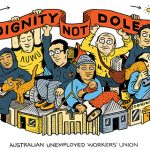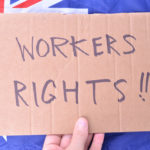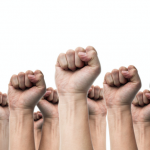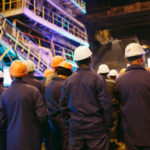No Worker Left Behind: An Interview With the May 1 Movement’s Robert Car
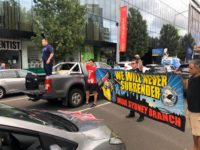
The Morrison government on 30 March announced a $130 billion wage subsidy package as part of the response to the COVID-19 pandemic. This means that qualifying businesses will be provided with a fortnightly wage subsidy of $1,500 per employee over the next six months.
If passed during a special sitting of federal parliament, the payments will kick in as of 1 May and will be backdated to 30 March. Businesses with an annual turnover of under $1 billion with at least a 30 percent downturn, and those with over $1 billion and a drop of at least 50 percent, will qualify.
However, while the package is welcomed, there’s still some glaring bias within it, as casual workers that haven’t been employed for at least 12 months, as well as gig workers, won’t be covered.
And since COVID-19 has set in, it’s these workers who’ve often found themselves at the pandemic frontline, conducting work that’s become some of the most dangerous and vital – think, supermarket employees and fast food delivery drivers.
Health before profits
In solidarity with workers set to be left behind if the package isn’t changed, the May 1 Movement, along with the Maritime Union of Australia – Sydney Branch, the CFMEU Construction and General NSW and the United Workers Union, are holding a protest.
And those demonstrating will be doing so in line with the new social distancing rules that have come into play over recent weeks. The No Worker Left Behind rally will involve a car convoy meeting in North Sydney at 3 pm this Thursday 9 April that will then travel across Sydney Harbour Bridge.
Sydney Criminal Lawyers spoke to May 1 Movement organiser Robert Car about his concerns over the wage stimulus package, the disparities in the system that COVID-19 has exposed, as well as how he’s expecting the rally to run smoothly as planned.
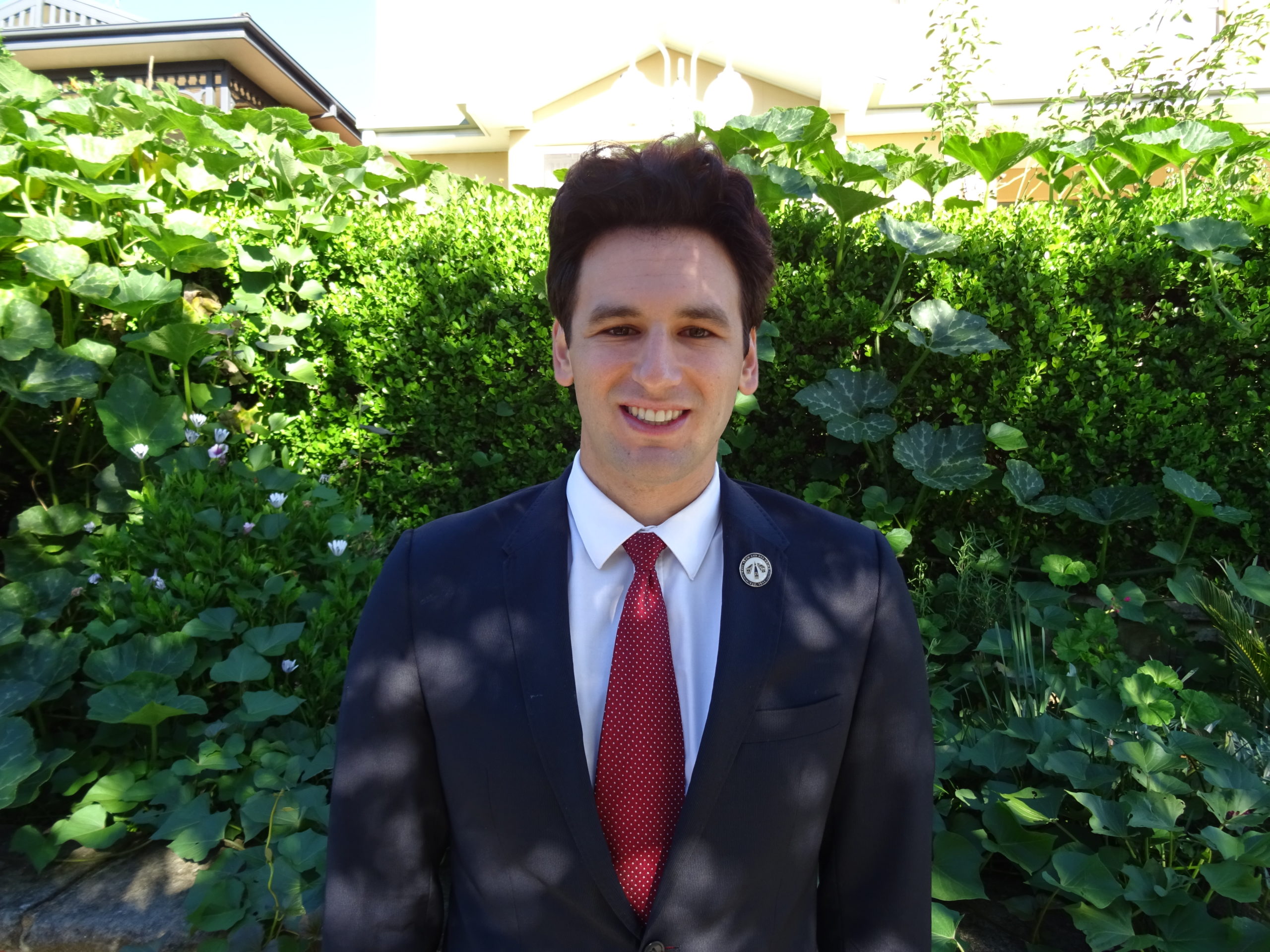
Firstly, on 30 March, the Morrison government announced a $130 billion wage subsidiary package. However, you’ve pointed out that there’s an implicit bias in it. Broadly speaking, why does it fail many?
I’m extremely glad you’ve mentioned the issue of bias in the Morrison government’s stimulus package.
A one hundred and thirty billion dollar wage subsidiary sounds like a huge number, but once you dig deeper, you actually discover that this package is about protecting the rich, rather than the bulk of Australian society.
I came across an incredible statistic recently about the value of tax avoided by Australia’s biggest corporations in 2017-18 as reported by the Australian Tax Office. This statistic is $550 billion dollars of tax avoidance.
Forget about $130 billion to bail out workers’ wages. What about the $550 billion tax avoidance?
So, the issue here isn’t about what money is available at all – that we can’t give more to bail out workers and so on – as $1,500 to bail out employees per fortnight doesn’t come near the highway robbery corporations get away with all the time.
We are literally dying for corporate profits, which is why “Health Before Profits” is one of our slogans.
And what are some implications of this package? What sort of people will be left behind?
To add insult to injury, the wage subsidiary package doesn’t apply to casuals with less than one year employment and gig economy workers, who are most vulnerable and are the most likely to spread COVID-19 in the industries they work in.
These are workers hardest hit by the pandemic, and I must say, the most unsupported by unions on account of low union membership density of casual and gig workers.
There’s no sugar coating this, the union movement and ALP response has simply not been enough. Online picket lines and political statements fall on mostly deaf ears when it comes to those affected on the frontline.
But, we must consider that this failure of unions and the ALP to respond generally has come from playing it safe, which may be in the nature of the ALP, but every unionist who knows the history of unions knows the biggest advances were made by defiance of the law, whether they admit it or not.
This package clearly leaves working Australians behind while protecting corporations and their agents.
The No Worker Left Behind rally will involve a car convoy making its way across the Sydney Harbour Bridge. However, a car convoy protest in Melbourne set to take place last Saturday was closed down under the threat of penalties relating to the new COVID-19 restrictions.
Are you concerned that Thursday’s demonstration could be shut down by NSW authorities?
I’m not at all concerned about the NSW authorities attempting to shut us down. Actually, the very fact that they can attempt to do this gives me courage that we are actually doing the right thing.
Coles, Woolworths, and supermarkets still run, and they’re much more dangerous scenes for COVID-19 transmission.
After talks with RAFFWU, we also don’t see the government encouraging sanitised home delivery at all, as surprise, surprise, corporations make less money from that form of service.
I fail to see how a convoy of cars and bicycles is any different to the traffic jam we still see on the major Sydney highways every morning.
I can tell you from my own personal experience in the May 1 Movement, that this isn’t cheap political sloganeering.
We do this out of love for the working class, and true love always involves risk and the breaking down of artificial barriers.
I’m extremely proud of the success we have had in building this action, as history shows us that what you can call true union events have always had an element of risk.
The best example is Clarrie O’Shea’s general strike of 1969.
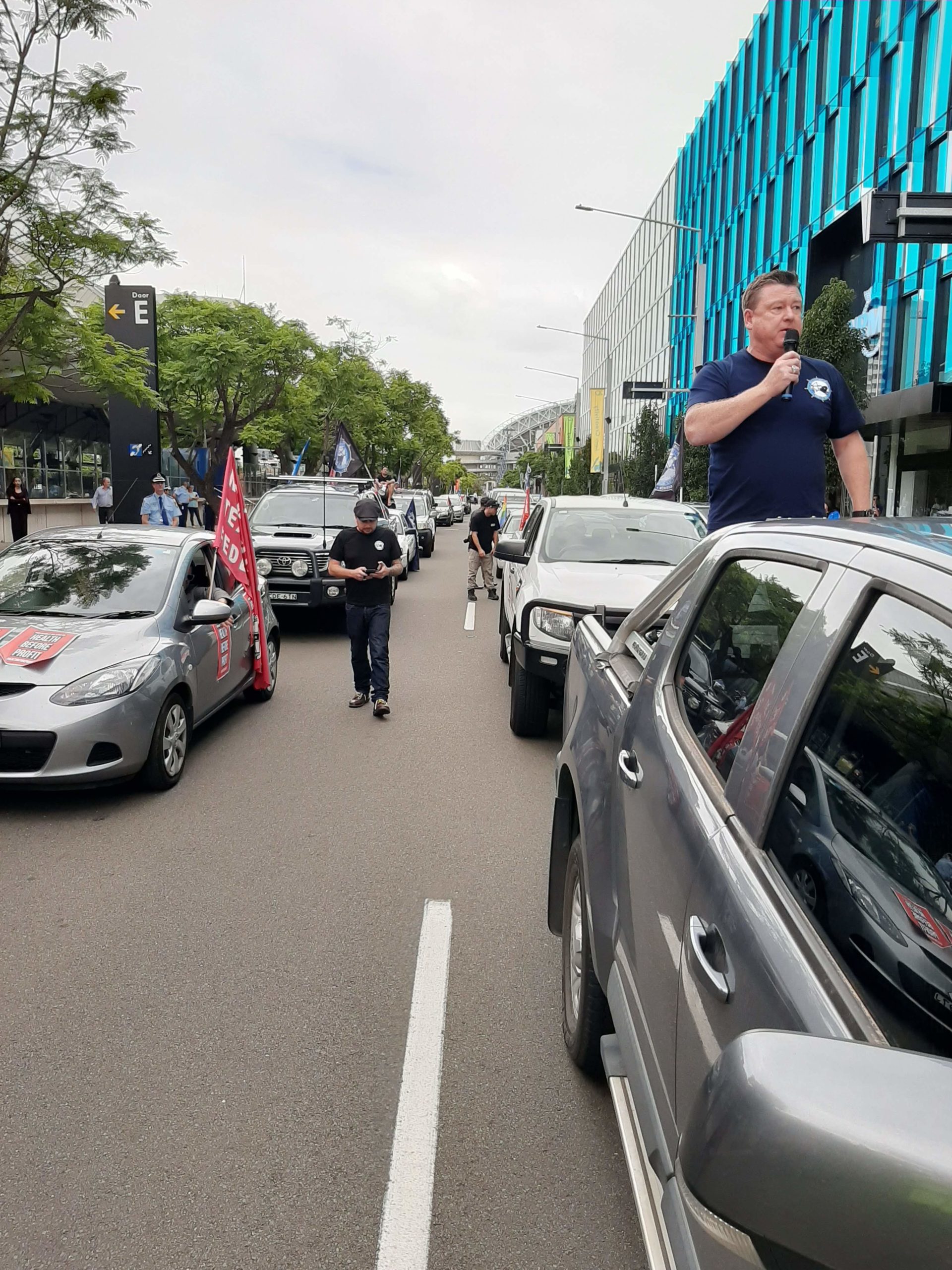
There’s also been a lot of talk about the coronavirus crisis shining a light on workplace issues that were present prior to the onset of these changes. What has the COVID-19 response revealed?
It’s not only the main workplace issue of precarious work that’s been highlighted by the COVID-19 response, but the general instability of capitalism that favours the rich.
We must take a systematic approach here and relate it to the last great economic crash: the Global Financial crisis of 2007-08. Replace the banks with corporations, and it’s exactly the same pattern we are seeing now.
Workers being left strung out to dry in both crises, with bailouts for the corporations in 2020 and bailouts in 2007-08 for banks.
The May 1 Movement isn’t just about unionism, it’s about creating an Australian movement that can fight the ruling class that goes beyond an illegal industrial May 1 walk off every year.
We are non-sectarian, but many of those involved have revolutionary working class politics.
I personally think this is the best result of the COVID-19 response, that we can unite and fight under a broad banner that doesn’t rely on parliaments and courts.
Generally, we are becoming more aware of the fact everywhere that the richest 26 people on earth have as much wealth as 3.8 billion people combined.
Wealth inequality today is unprecedented in human history. The COVID-19 pandemic has merely made this wealth inequality more visible, in workplaces and across all societies in general.
And lastly, your taking to the streets in cars on Thursday to protest the wage subsidy package. What sort of changes to it are you calling for?
We have three immediate demands. The first is an income guarantee for every worker currently in Australia: no one should be thrown out onto the street during the crisis.
The second is don’t bailout essential services, nationalise them: public goods into public ownership.
And the last is a visa amnesty for all migrant workers, and Medicare extended to cover everyone currently in Australia.


